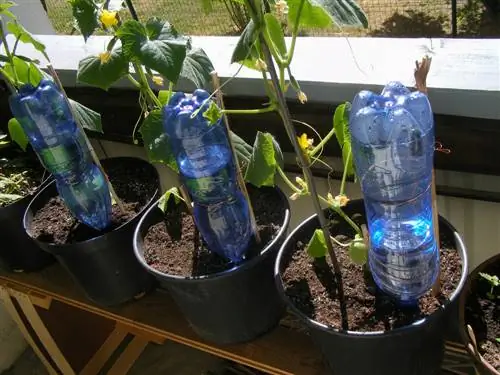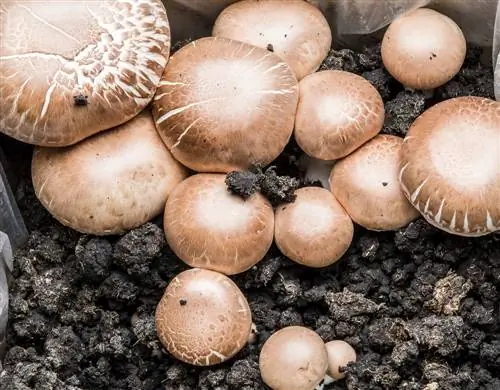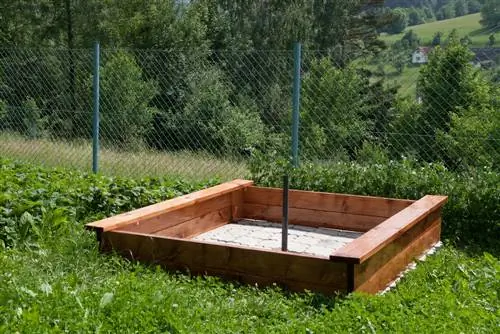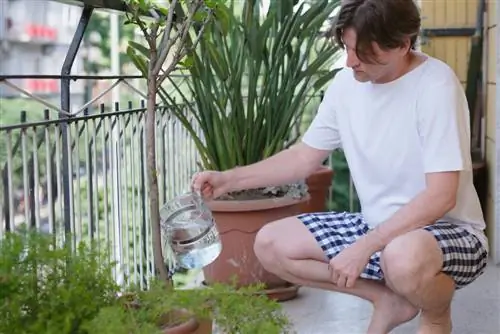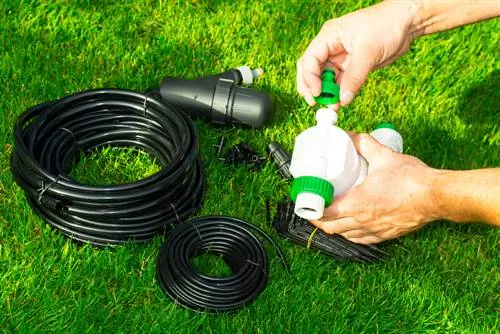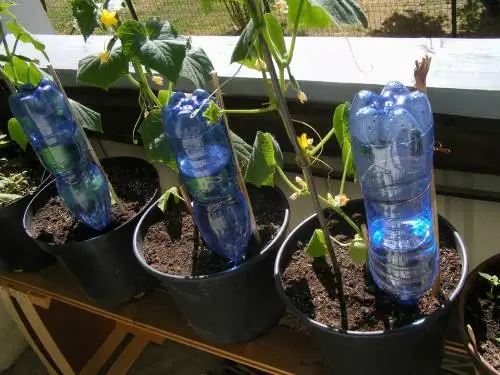- Author admin leonars@hobbygardeners.com.
- Public 2023-12-16 16:46.
- Last modified 2025-01-23 11:21.
Plants, like all living things, depend on a regular and sufficient supply of water. This particularly applies to balcony and therefore potted plants, as they cannot provide for themselves via their root system in an emergency. Watering in the morning and, during the hot summer months, often in the evening is therefore essential. Automatic watering can support you and relieve you of a lot of work - and also let you go on holiday without any worries, even without neighbors or friends to help.

How can you build an irrigation system for your balcony yourself?
A self-made irrigation system for the balcony requires a water tank (at least 300 liters), garden hoses and irrigation cones. The tank should be positioned higher than the plants and the hoses should be connected to each other. Then the irrigation cones are inserted into the substrate and the hoses are connected.
DIY watering with bottles and other tools
The most cost-effective systems are simple systems in which you insert the water storage containers directly into the substrate of the potted plants and they gradually release the valuable water to the roots. To do this, you can use simple PET or glass bottles with solid walls (important! Bottles with flexible walls don't work!), which you fill with water and then simply stick upside down into the already pre-watered substrate. To prevent too much water from spilling out at once, you can leave the lid on the bottle, but of course you have to perforate it. Instead, screw-on irrigation cones (€15.00 on Amazon) made of clay or plastic can also be used, which also reduce the amount of water released. Irrigation balls, which are usually made of glass or clay, work according to a similar functional principle.
The bathtub principle
If you have a lot of smaller pots on your balcony that need to be taken care of during a short absence, you can also place them without a planter in the bathtub that is lined with thick towels and filled with water about five centimeters high. If you don't have a bathtub, a paddling pool or other sufficiently large container will serve the same purpose. Instead of towels, you can also bed the pots in plant granules (e.g. perlite) and moisten them with water. The granules store a lot of water and at the same time offer the advantage that the roots of the plants are not directly in the wet. However, be careful not to place the plants in direct sunlight. Instead, they should be shaded so that less water is used.
Make your own drip irrigation system for the balcony
A permanent solution, on the other hand, is a self-made drip irrigation system that works without an extra power and water connection. All you need is a sufficiently large water tank (at least 300 liters capacity), standard garden hoses that can be connected to each other and matching irrigation cones (e.g. from Blumat). And this is how you build the system:
- Install the water tank at a higher level than the plants to be watered
- Optimally it is about 50 to 100 centimeters higher than the planters.
- If possible, use a rain barrel with a water connection at the bottom.
- Connect the garden hose here.
- Connect the individual hoses together so that each planter has its own.
- Prepare the watering cones as described in the instructions.
- Put them into the substrate and connect the hoses.
If the system is running smoothly, all you have to do is refill the water reservoir regularly.
Tip
Submersible pumps don't just work with an external power connection. You can also use solar or battery-powered versions instead.

